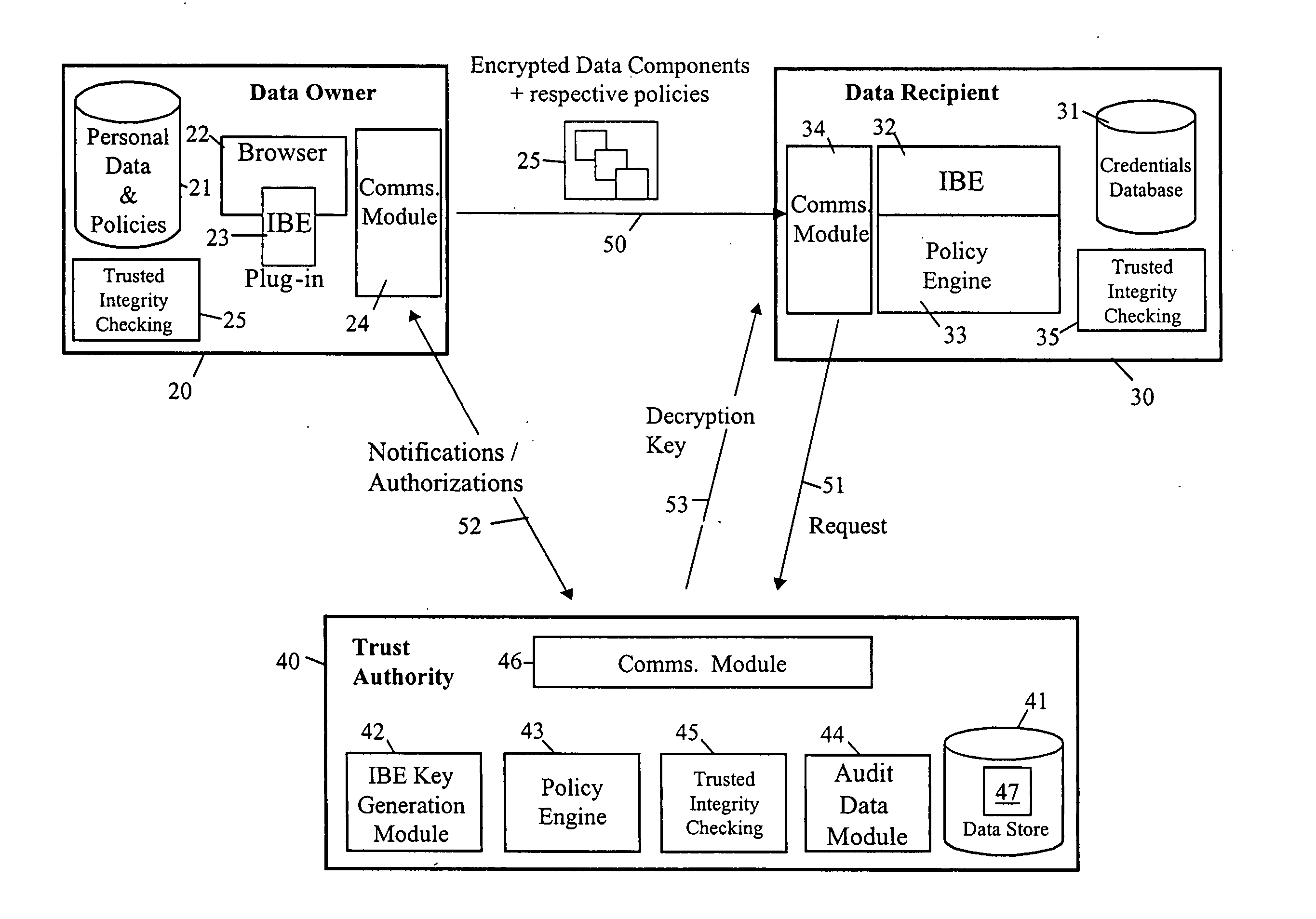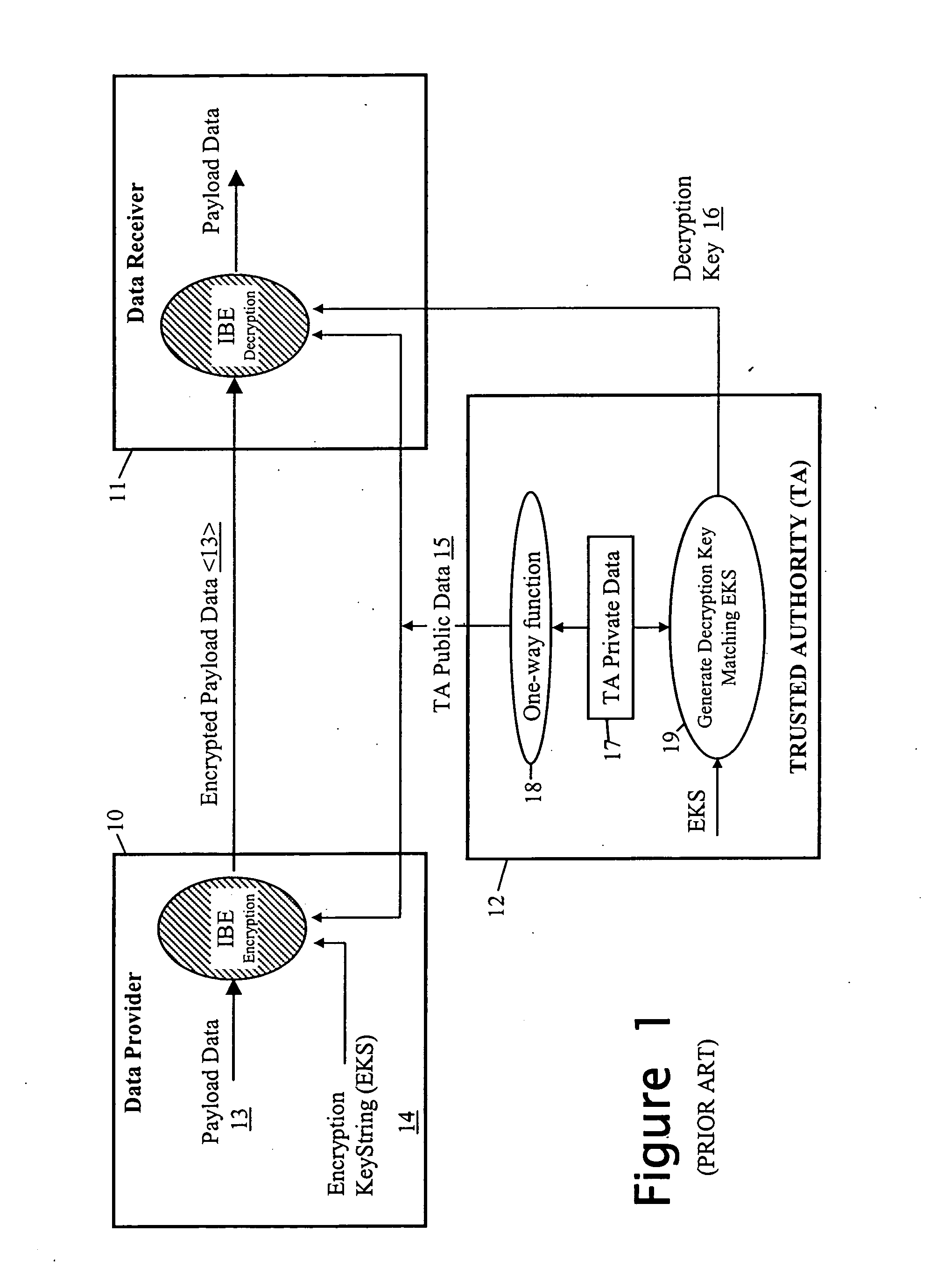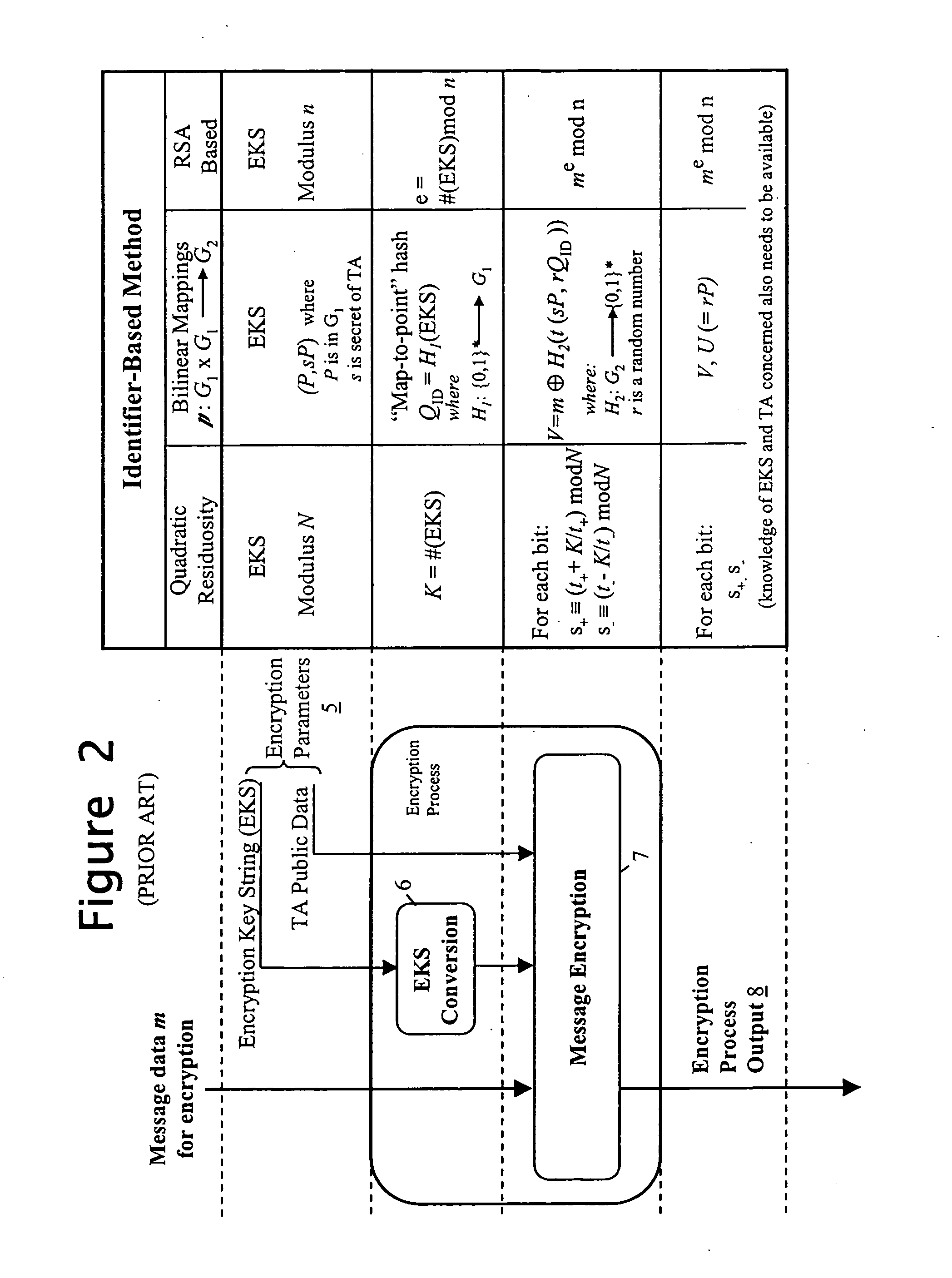Privacy management of personal data
a technology for personal information and privacy management, applied in the field of privacy management of personal data, can solve the problems of users having little understanding or knowledge of privacy laws and laws, difficult to enforce or monitor privacy and data protection laws that regulate this area, and users having a lack of control over their personal information
- Summary
- Abstract
- Description
- Claims
- Application Information
AI Technical Summary
Benefits of technology
Problems solved by technology
Method used
Image
Examples
Embodiment Construction
FIG. 3 illustrates a privacy management system in which a data-owner computing entity 20 is arranged to encrypt personal data and send it to a data-recipient computing entity 30 which then requests a decryption key from a trust authority computing entity 40 and, on receipt of the key, decrypts and uses the personal data. The computing entities 20, 30 and 40 inter-communicate, for example, via the internet or other computer network though it is also possible that two or all three entities actually reside on the same computing platform.
The system employs Identifier-Based Encryption with the computing entities 20, 30 and 40 having the roles of the data provider 10, data recipient 111 and trusted authority 12 of the FIG. 1 IBE arrangement. The IBE algorithm used is, for example, the QR algorithm described above with respect to FIG. 1. The encryption key string used to encrypt the personal data is a privacy / disclosure policy setting out conditions that must be satisfied before access is...
PUM
 Login to View More
Login to View More Abstract
Description
Claims
Application Information
 Login to View More
Login to View More - R&D
- Intellectual Property
- Life Sciences
- Materials
- Tech Scout
- Unparalleled Data Quality
- Higher Quality Content
- 60% Fewer Hallucinations
Browse by: Latest US Patents, China's latest patents, Technical Efficacy Thesaurus, Application Domain, Technology Topic, Popular Technical Reports.
© 2025 PatSnap. All rights reserved.Legal|Privacy policy|Modern Slavery Act Transparency Statement|Sitemap|About US| Contact US: help@patsnap.com



